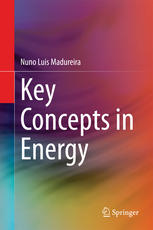

Most ebook files are in PDF format, so you can easily read them using various software such as Foxit Reader or directly on the Google Chrome browser.
Some ebook files are released by publishers in other formats such as .awz, .mobi, .epub, .fb2, etc. You may need to install specific software to read these formats on mobile/PC, such as Calibre.
Please read the tutorial at this link: https://ebookbell.com/faq
We offer FREE conversion to the popular formats you request; however, this may take some time. Therefore, right after payment, please email us, and we will try to provide the service as quickly as possible.
For some exceptional file formats or broken links (if any), please refrain from opening any disputes. Instead, email us first, and we will try to assist within a maximum of 6 hours.
EbookBell Team

4.0
56 reviewsOrganized around eight fundamental ideas, Key concepts in energy history explores the discoveries, technologies and new paradigms in the field of energy, and how they have changed the course of history. Complex technical concepts such as the “rebound effect”, “technological hybridization”, “marginal cost pricing” are explained in clear terms and a balanced and concise account of t energy sources in the XIX and XX century such as wood, coal, oil, hydroelectricity and nuclear energy is provided.
Key concepts in energy considers the process of energy-substitutions and analyzes it as a process of complementary usages, hybridization and technological mixes. The ex-post view tends to focus on replacement from among alternative energy-technologies and is basically innovation-centric. This means that little attention has been given to factors such as the windows of opportunities created by governments, inventors and entrepreneurs.
This book highlights how key energy concepts surfaced, tracing their evolution throughout history. It encompasses four economic concepts (rebound effect, energy intensity, marginal cost pricing and levelized cost accounting) and four technological-engineering concepts (primary/final energy, technological hybridization, last gasp and probable oil reserves). The main benefit from reading the book is a cross disciplinary overview of energy fundamentals in a short and focused reading.